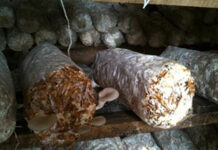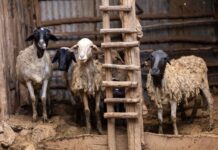Better profits, better nutrition through improved poultry farming methods
The US-based World Poultry Foundation (WPF) has developed a series of online training videos to help emerging African poultry farmers learn poultry farming best practice and optimise their farming operations.
WPF has collaborated with local organisations such as South Africa’s Kwazulu Natal Poultry Institute for several years to foster improved poultry farming and help small local farmers expand their operations.
The new series of training videos, designed to assist small and mid-size brooding operations and rural farmers, cover key areas such as management of feed, water, brooding, vaccination, recordkeeping, biosecurity and poultry housing.
WPF CEO Randall Ennis says the video series was developed to address challenges faced by emerging poultry farmers. “In our training sessions and engagements with new and emerging farmers across the African continent, we discovered that many farmers had certain challenges in common. These included feed and water management and accurate record-keeping, among others. We found they were able to significantly improve their outputs and profits once they had access to information on best practices,” he says.
The series is grouped into four categories: Production: Feed, Water, Litter, Zone of Comfort (brooding); Management: Vaccination, Managing for Success (recordkeeping); Housing: Poultry Housing, Preparing the House, and Biosecurity; and Small scale producer: Household Nutrition, and Backyard Management.
Randall notes that the videos, training and workshop programmes available to emerging farmers in Africa are in line with improving overall poultry management and in the introduction of more productive dual-purpose birds at the rural village level. WFP’s key goals include:
- ) Poultry production and productivity: By having access to improved low-input dual-purpose breeds that have been properly brooded, fed, and vaccinated; the WPF seeks to achieve a significant increase in productivity when compared to the local indigenous breeds.
- ) Increasing rural household income: Improved management and the introduction of dual-purpose birds will provide a net benefit from egg production and sales, as well as from the sale of males for meat.
- ) Improving household nutrition: By increasing productivity and producing more meat and eggs, it is assumed that a portion of output would be consumed by the families, particularly the children. What is not consumed would be sold and the additional income generation may also be used for a more diverse diet for the household.
- ) Empowerment of women: A goal of the WPF is to establish poultry enterprises primarily owned and operated by women.
An introduction and orientation to the training videos, the series of 11 videos and supporting worksheets and checklists is available here
For more information please visit the World Poultry Foundation website at:








